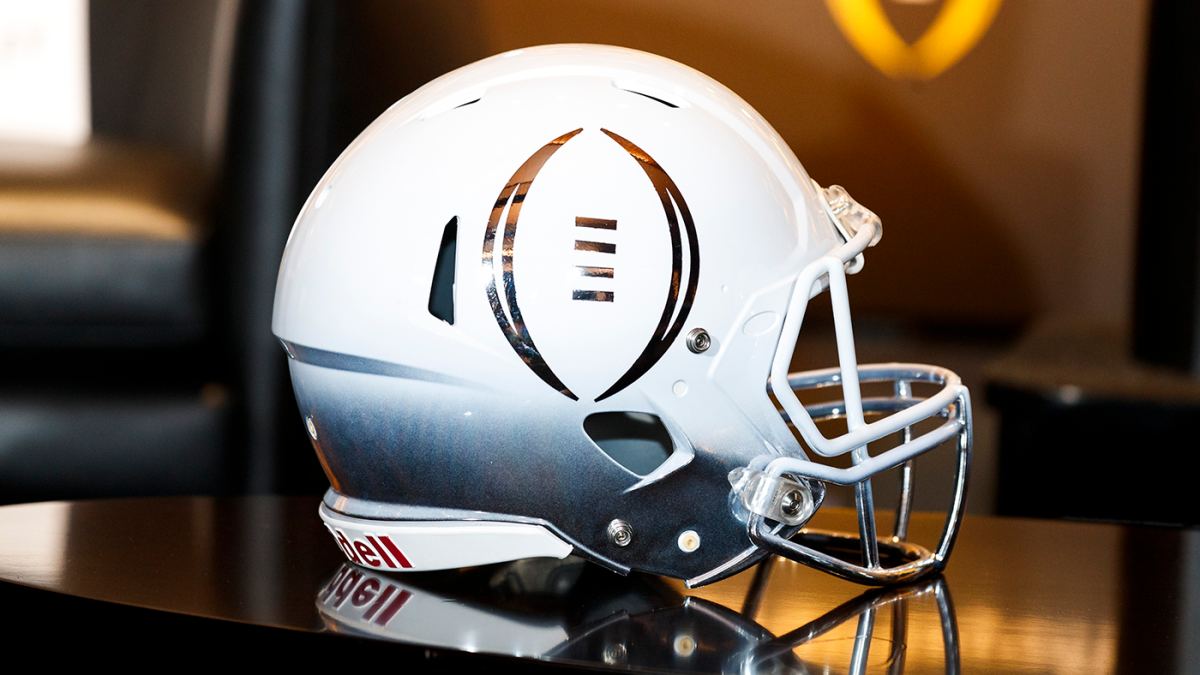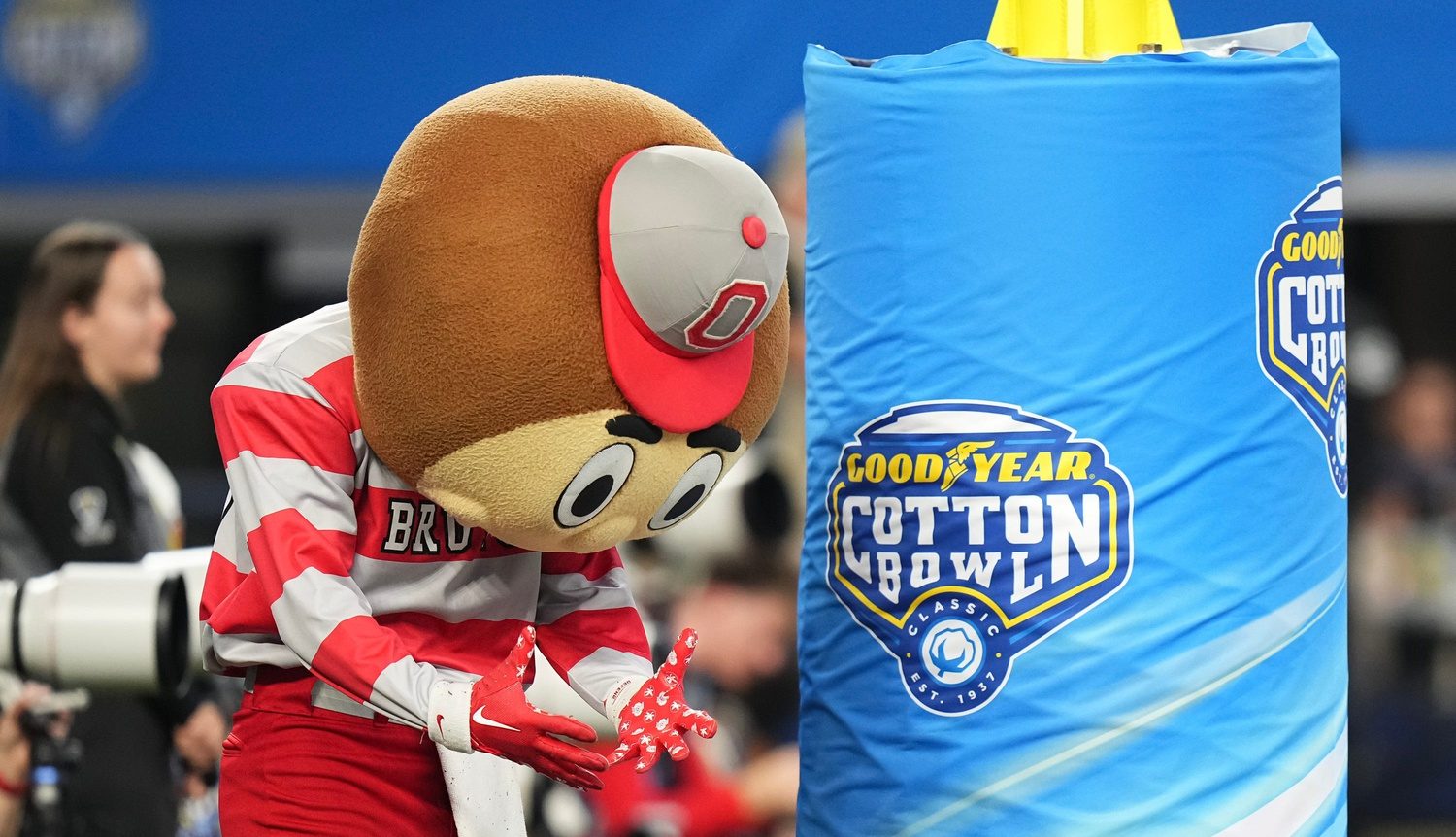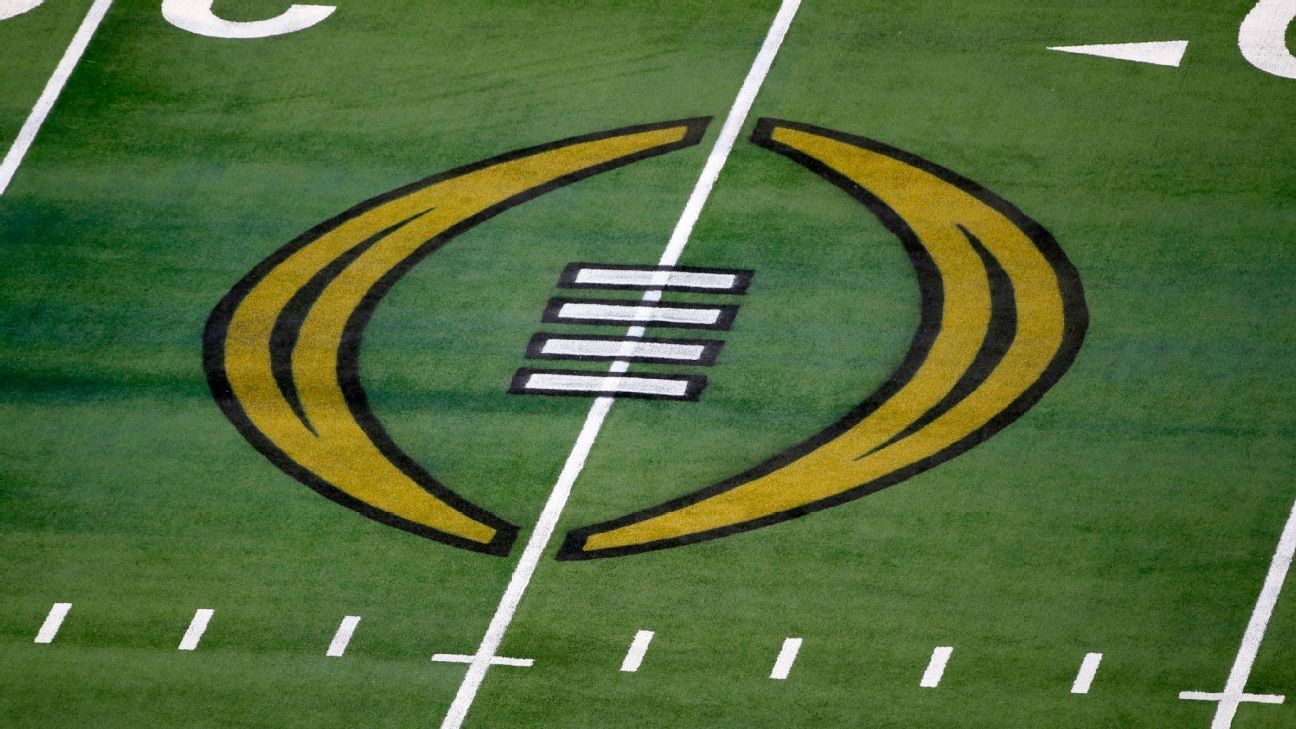ScriptOhio
Everybody is somebody else's weirdo.
With the 12 team CFP format next year will the ybe able to keep star players from opting out?

 www.cbssports.com
www.cbssports.com

One major bowl game executive has thought deeply about the prospect of losing his biggest drawing card as the College Football Playoff prepares for expansion in 2024. With the multibillion-dollar industry growing, the executive pondered what has emerged as the biggest question to this point with the format expanding to 12 teams: What if they threw the biggest national championship party ever but the best player(s) didn't show up?
"You gotta wonder, how many agents and parents are going to get in these kids' heads and say, 'Hey, we've got generational money here. Why are we going to go ahead and play for this thing?'" the executive told CBS Sports under the condition of anonymity.
Bowl game opt-outs are a modern trend. In 2016, running backs Leonard Fournette (LSU) and Christian McCaffrey (Stanford) caused a stir by skipping their respective postseason games. The practice has since become an expected -- if not accepted -- part of the bowl season.
The choice has always been understandable on some level.
At their core, bowl games are exhibitions in which players are not directly compensated for their participation. For those transferring or preserving their bodies for the NFL Draft process, sitting out makes perfect sense. The 12-team playoff will change the math, however, by bringing the possibility of four extra games. College football players may now suit up for 17 games, equal to an NFL regular season.
The choice now shifts from deciding whether to play just one exhibition game to risking generational NFL money to play as many as four additional games in pursuit of a national championship. (So far, through 10 years of the CFP, not a single player has intentionally opted out to preserve his body for the draft.)
"From the moment McCaffrey and others before him said they weren't going to play in bowl games, [I think] everybody should opt out if you're going to be a first- or second-rounder," said Richard Giller, head of insurance recovery at the Los Angeles-based Greenspoon Marder law firm.
CBS Sports has spent the last year speaking with approximately 20 persons closely associated with college football about the prospect of players opting out of the 12-team CFP. The discussions centered around a basic question: Is risking a broken body part (or worse) playing those extra games worth risking the generational NFL Draft money that awaits?
.
.
continued
.
.
Jason Belzer, CEO of Student Athlete NIL, called "absolute bullshit" on a report stating $20 million to $25 million in NIL money was being raised to keep Ohio State All-American wide receiver Marvin Harrison Jr. out of the draft. Belzer said participation in postseason games could potentially be written into an NIL agreement.
.
.
continued

Will players opt out of expanded College Football Playoff? NFL hopes, injury prevention create tough decisions
The 12-team playoff could lead to some players suiting up for as many as 17 games in a season
Will players opt out of expanded College Football Playoff? NFL hopes, injury prevention create tough decisions
The 12-team playoff could lead to some players suiting up for as many as 17 games in a season

One major bowl game executive has thought deeply about the prospect of losing his biggest drawing card as the College Football Playoff prepares for expansion in 2024. With the multibillion-dollar industry growing, the executive pondered what has emerged as the biggest question to this point with the format expanding to 12 teams: What if they threw the biggest national championship party ever but the best player(s) didn't show up?
"You gotta wonder, how many agents and parents are going to get in these kids' heads and say, 'Hey, we've got generational money here. Why are we going to go ahead and play for this thing?'" the executive told CBS Sports under the condition of anonymity.
Bowl game opt-outs are a modern trend. In 2016, running backs Leonard Fournette (LSU) and Christian McCaffrey (Stanford) caused a stir by skipping their respective postseason games. The practice has since become an expected -- if not accepted -- part of the bowl season.
The choice has always been understandable on some level.
At their core, bowl games are exhibitions in which players are not directly compensated for their participation. For those transferring or preserving their bodies for the NFL Draft process, sitting out makes perfect sense. The 12-team playoff will change the math, however, by bringing the possibility of four extra games. College football players may now suit up for 17 games, equal to an NFL regular season.
The choice now shifts from deciding whether to play just one exhibition game to risking generational NFL money to play as many as four additional games in pursuit of a national championship. (So far, through 10 years of the CFP, not a single player has intentionally opted out to preserve his body for the draft.)
"From the moment McCaffrey and others before him said they weren't going to play in bowl games, [I think] everybody should opt out if you're going to be a first- or second-rounder," said Richard Giller, head of insurance recovery at the Los Angeles-based Greenspoon Marder law firm.
CBS Sports has spent the last year speaking with approximately 20 persons closely associated with college football about the prospect of players opting out of the 12-team CFP. The discussions centered around a basic question: Is risking a broken body part (or worse) playing those extra games worth risking the generational NFL Draft money that awaits?
.
.
continued
.
.
Jason Belzer, CEO of Student Athlete NIL, called "absolute bullshit" on a report stating $20 million to $25 million in NIL money was being raised to keep Ohio State All-American wide receiver Marvin Harrison Jr. out of the draft. Belzer said participation in postseason games could potentially be written into an NIL agreement.
.
.
continued
Upvote
0





